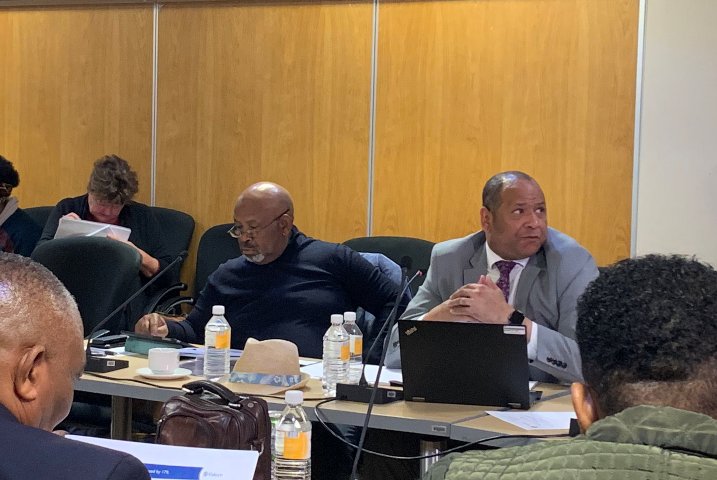Govt’s support remains crucial in addressing liquidity concerns: Eskom CEO
In June, Eskom announced a net loss after tax of R21 billion – which Mabuza said is almost ten times more than the R2.3 billion loss that the power utility posted in the previous financial year (2017/18).

- Country:
- South Africa
Eskom’s Acting Group Chief Executive Officer Jabu Mabuza says the government’s financial support remains important in addressing short-term liquidity concerns.
He also said that creating an energy plan for the power utility and the country remained critical in an ever-changing energy landscape.
He said this as he presented the power utility’s annual report to the Portfolio Committee on Public Enterprises in Cape Town on Wednesday.
The annual report, which has already been made public, shows that Eskom’s financial performance is in a dire state.
In June, Eskom announced a net loss after tax of R21 billion – which Mabuza said is almost ten times more than the R2.3 billion loss that the power utility posted in the previous financial year (2017/18).
In July, the National Assembly approved the Special Appropriations Bill with an aim to pave the way to allocate R59 billion to the embattled power utility - comprising of an additional R26 billion in 2019/20 financial year and R33 billion in the 2020/21 financial year.
“The government financial support addresses our short-term liquidity concerns and relieves the financial pressure. These are issues that will be covered in more detail as they are part of the work in progress that the Minister of Finance and the National Treasury are working on.
“Our turnaround strategy to stabilize, separate and to grow the company for financial and operational sustainability remains urgent. Those elements of the strategy that we can implement, we continue to. But in the end, it is very critical to create a country energy plan as the next few years pose tougher challenges for Eskom and the energy industry in an ever-changing landscape,” he said.
Briefing members of the committee, Mabuza said industrial action at the power utility has also had an impact on operations and finance.
He also said that the generation energy availability factor stood at 70% and that these factors have necessitated Eskom to spend R6.5 billion on diesel-generated power to minimize the magnitude of load shedding.
He also said that in the same period, municipal debt rose to R20 billion.
Eskom’s financial performance
Meanwhile, Eskom’s Chief Financial Officer Calib Cassim said Eskom’s cash flow statement showed that only R33 billion of net cash generated from operating activities is not sufficient to service debt costs.
He said the power utility needed R69 billion to service its debt.
“From an operational perspective, we do see some positives but the financials are a reflection of how the operations are performing.
“The more we can get generation and even the energy availability up, it means less dependence on the expensive supplier options and more importantly, to give confidence to the economy that Eskom can then meet the supply that is required. It is still a challenge, we are confident we can address that.”
Mabuza said, meanwhile, that there was encouraging progress to instill governance and root out financial mismanagement and malfeasance and maladministration.
“On the operational side, we have implemented our generation nine-point recovery programme which has started to see some positive results in plant performance throughout the winter period.
“We are pleased to say we have not had to load shed since the 24th of March 2019,” he said.
(With Inputs from South African Government Press Release)
ALSO READ
Vietnam National Assembly speaker to visit China April 7-12
RBI to review liquidity coverage ratio framework: Guv Shaktikanta Das
Vietnam National Assembly chairman meets China's President Xi in Beijing
Vietnam National Assembly chairman meets China's President Xi in Beijing
UML’s Ghimire elected Nepal's National Assembly vice chair










